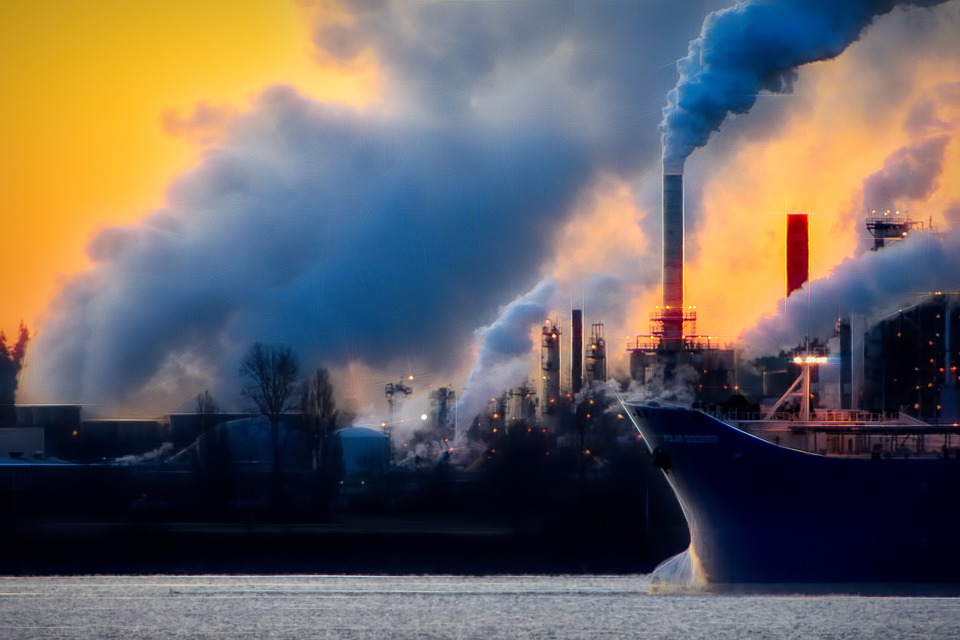What Is Climate Change and Its Causes and Effects?
Climate change refers to significant long-term changes in the average weather patterns of the Earth, primarily driven by human activities. This phenomenon is a critical global issue today due to its profound implications for ecosystems, human health, and economies worldwide. Understanding its causes and effects is essential for developing effective strategies to mitigate its impact.
What Is Climate Change?
Climate change can be simply defined as a long-term alteration in temperature and typical weather patterns in a place. It is crucial to distinguish between weather, which refers to short-term atmospheric conditions, and climate, which describes long-term trends over decades or centuries.
The Earth’s climate has changed throughout geological history, influenced by natural factors such as volcanic eruptions and variations in solar radiation. However, the current rate of change is unprecedented, largely due to human activities since the mid-20th century.
Natural Causes of Climate Change
Natural processes contribute to climate variability through various mechanisms:
– Volcanic Activity: Eruptions release gases and particulates into the atmosphere, causing temporary cooling or warming effects.
– Solar Radiation: Changes in the sun’s energy output can influence Earth’s climate over time.
– Ocean Currents: These currents play a vital role in redistributing heat across the planet, affecting regional climates.
Human Causes of Climate Change
Human activities have significantly accelerated climate change through several key actions:
– Burning of Fossil Fuels: The combustion of coal, oil, and natural gas releases large amounts of carbon dioxide (CO2) and other greenhouse gases into the atmosphere.
– Deforestation: The removal of trees reduces the planet’s capacity to absorb CO2, exacerbating greenhouse gas concentrations.
– Agriculture: Livestock farming produces methane, a potent greenhouse gas, while synthetic fertilizers contribute to nitrous oxide emissions.
– Industrial Activities: Emissions from factories and transportation systems increase atmospheric pollution.
Greenhouse Effect: How Human Actions Accelerate Climate Change
The greenhouse effect is a natural process where certain gases trap heat in the Earth’s atmosphere. Human activities have intensified this effect by increasing the concentration of greenhouse gases such as CO2, methane, and nitrous oxide. As these gases accumulate, they enhance heat retention, leading to global warming.
Effects of Climate Change
The impacts of climate change are far-reaching and include:
– Rising Global Temperatures: Average global temperatures have increased significantly, with projections indicating further rises if current trends continue.
– Melting Polar Ice Caps and Glaciers: This contributes to rising sea levels, threatening coastal communities and ecosystems.
– Extreme Weather Events: An increase in the frequency and severity of hurricanes, floods, droughts, and heatwaves poses risks to human safety and infrastructure.
– Impact on Ecosystems: Biodiversity is disrupted as habitats are altered or destroyed, leading to species loss.
– Effects on Human Health: Increased heat-related illnesses, the spread of infectious diseases, and food insecurity are direct consequences of climate change.
– Economic Consequences: Agriculture faces disruptions due to changing weather patterns, while infrastructure suffers damage from extreme weather events.
Global Responses to Climate Change
Efforts to combat climate change include:
– International Agreements: Treaties like the Paris Agreement aim for global targets in reducing emissions.
– Renewable Energy Solutions: Transitioning to solar, wind, hydroelectric, and other sustainable energy sources is crucial for reducing fossil fuel dependency.
– Reforestation and Conservation: Initiatives focus on preserving existing forests and planting new trees to absorb CO2.
– Technology and Innovation: Advances like carbon capture and storage (CCS) and electric vehicles offer promising solutions for reducing emissions.
FAQs
What is climate change in simple terms?
Climate change refers to long-term alterations in temperature and weather patterns caused primarily by human activities that increase greenhouse gas concentrations in the atmosphere.
What are the primary causes of climate change?
The main causes include burning fossil fuels, deforestation, agricultural practices that emit methane and nitrous oxide, and industrial emissions.
How does climate change affect the environment?
Climate change leads to rising temperatures, melting ice caps, extreme weather events, loss of biodiversity, health risks for humans, and economic disruptions.
What can individuals do to combat climate change?
Individuals can reduce energy use, support renewable energy initiatives, adopt sustainable practices like plant-based diets, and advocate for policies addressing climate issues.
Conclusion
In summary, climate change represents a significant challenge characterized by its causes rooted in both natural processes and human activities. The effects are widespread—impacting ecosystems, human health, economies—and necessitate urgent global cooperation alongside individual responsibility for mitigation efforts. Understanding these dynamics is crucial for fostering effective responses to this pressing issue.

Kyle Whyte is a notable scholar and professor at the University of Michigan, holding positions such as the George Willis Pack Professor in the School for Environment and Sustainability and Professor of Philosophy. Specializing in environmental justice, his work critically examines climate policy and Indigenous peoples’ ethics, emphasizing the nexus between cooperative scientific endeavors and Indigenous justice. As an enrolled Citizen Potawatomi Nation member, he brings a vital perspective to his roles as a U.S. Science Envoy and member of the White House Environmental Justice Advisory Council. His influential research is supported by various prestigious organizations including the National Science Foundation, and disseminated through publications in high-impact journals. Kyle actively contributes to global Indigenous research methodologies and education, with affiliations to numerous institutes and societies dedicated to traditional knowledge and sustainability. Recognized for his academic and community engagement, Kyle has earned multiple awards and served in various visiting professorships. His efforts extend to leadership positions on boards and committees focused on environmental justice nationwide.
